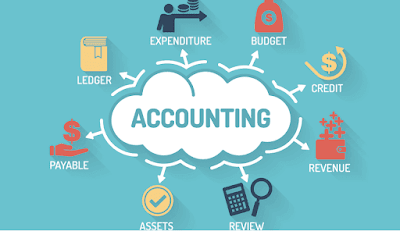How to Hire a Good Bookkeeper for Your Business
Eventually, your company will need to engage a bookkeeper to help handle your accounting data and activities.
As a cost-cutting move, some business owners try to handle their own books (more than one-third, or 34%, claim they manage their bookkeeping themselves).
Too often, however, these entrepreneurs fail to keep accurate records or neglect their accounts and bank reconciliations in favour of more pressing matters. In any instance, they risk losing time and money if their books become disorganised and they are forced to play catch-up.
Hiring a bookkeeper on a daily basis to record and classify your transactions is the best approach to keep your financial information structured and up to date, so you can:
a) Improve your cash management
b) Make future plans that are reasonable.
c) Maintain your attention on running your business.
While it may take some effort to discover the ideal expert for your requirements, the following 5 tips on how to employ a competent bookkeeper can make your work simpler.
1. Employ the proper sort of bookkeeper.
Is your small business expanding? If this is the case, now may not be the greatest moment (financially) to invest in a full-time bookkeeper. Consider a less expensive option, such as hiring a part-time in-house bookkeeper or outsourcing your accounting to a third-party agency.
Bookkeepers who work part-time (or freelance)
Hiring a qualified expert locally for your bookkeeping work might be a cost-effective option:
- Come to your workplace on a part-time basis.
- Keep track of your physical papers.
- Keep your financial records up to date.
However, there are a few possible downsides to this setup.
There will be no one to cover your bookkeeper's work if they become ill or leave on vacation. Worse, if they unexpectedly resign or disappear, figuring out where your accounts are and migrating to a new bookkeeper may be difficult and time-consuming.
There's also the possibility that if your company develops too large or too rapidly, your part-time bookkeeper will struggle to keep up, especially if they're managing many customers.
Third-party bookkeepers
Another low-cost bookkeeping alternative is to use a third-party or virtual business. While these businesses are typically distant (they won't come to your office), they are also technologically competent. That implies they'll be able to automate your receipt collection and billing operations.
Another significant benefit of using an outside accounting firm is that, because they usually work as a team, there will always be someone ready to oversee your books.
Even better, most third-party organisations provide other services, such as specialised payroll, accounts payable, and accounts receivable administration, which enables them to match your evolving bookkeeping needs as your business expands.
2. Verify their experience in the business.
Because bookkeeping techniques vary by industry, it's critical that the bookkeeper you employ has prior experience working with firms similar to yours. They may not know how to keep correct records for a nonprofit organisation if they've only ever dealt with customers in the restaurant business, for example.
A good bookkeeper should be able to do the following:
Create a chart of accounts (based on your business type and needs)
Sort your everyday money transactions into categories.
Create your financial statements.
Don't be hesitant to inquire about a bookkeeper's years of experience and, if necessary, ask them technical questions.
3. Take a look at the other services they provide
Learning how to choose a competent bookkeeper entails balancing the advantages of any add-on services they provide in addition to analysing their bookkeeping expertise and abilities. Having to hire someone to manage your payroll separately, for example, might increase your bookkeeping costs.
It's also worth mentioning that, while bookkeepers and accountants have distinct areas of expertise, certain organisations (such as Enkel) provide specialist services (such as fractional controllership) to help you manage your company's development.
4. Check to see whether they're familiar with accounting software
When your organisation is just getting started, bookkeeping with spreadsheets may work OK, but depending on manually inputted data over time can make accurate financials difficult.
Good bookkeepers aren't simply aware of the advantages of utilising accounting software to keep records accurate and streamline procedures; they're also:
Are you familiar with the desktop software that the majority of businesses use?
ability to migrate your books to cloud-based software such as QBO (QuickBooks Online)
Apps and technological tools for automating specific data entering chores might be recommended.
Before employing an otherwise skilled bookkeeper, be sure you inquire about their knowledge of certain accounting systems and software.
5. Verify their legitimacy
Getting a recommendation from someone you trust might be a useful approach to assess a potential accounting hire's credibility. This might involve seeking advice from your accountant, banker, other company owners, or your local professional group.
If you're thinking about employing a bookkeeper you found on the internet, be sure to:
Request client references and/or case studies that demonstrate their abilities.
Speak with previous or current clients directly.
Use the facts you've gathered to figure out if they're a good fit and if they're trustworthy.
With 98% of company owners admitting that they'd rather focus on business growth than on mundane activities like bookkeeping, knowing how to employ a competent bookkeeper boils down to managing your time.
Mindspace Outsourcing Services can assist you if you're ready to engage a dependable bookkeeper who will produce correct books and timely financial reports while saving you time and money.



Comments
Post a Comment